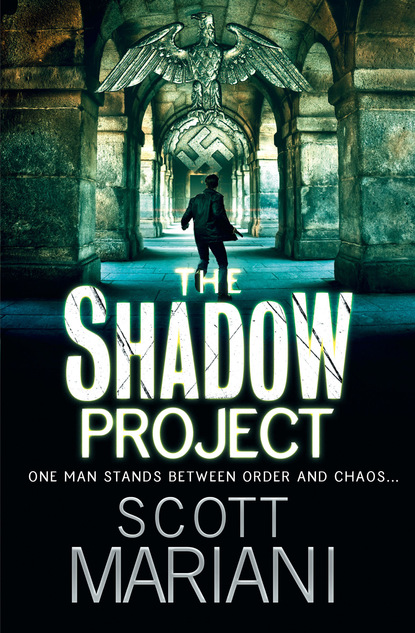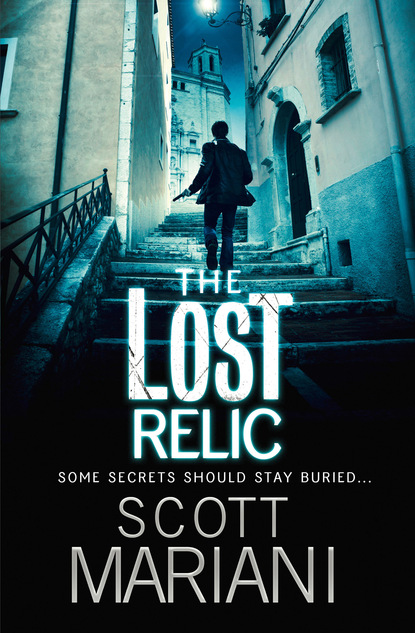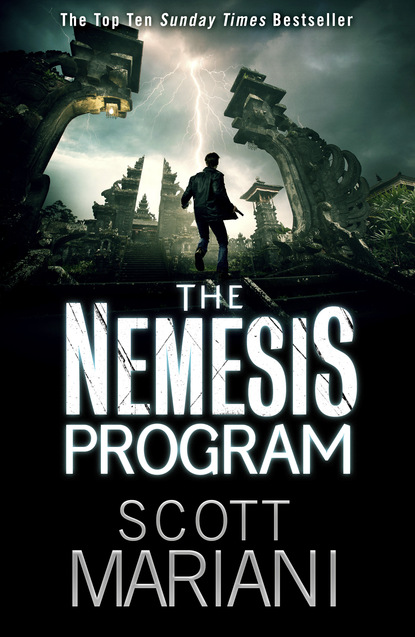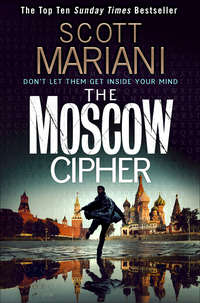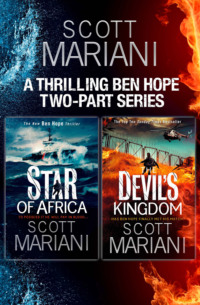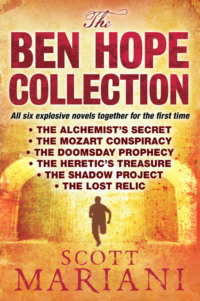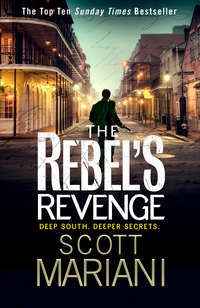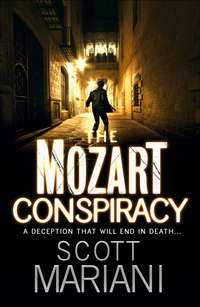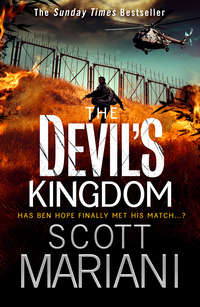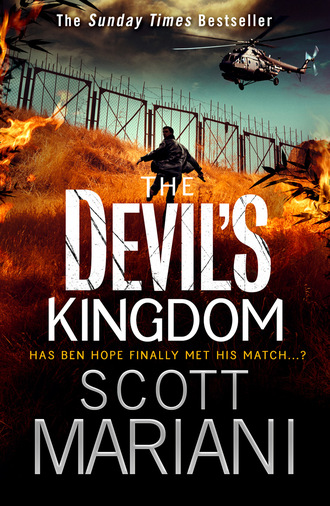
Полная версия
The Devil’s Kingdom
‘Nothing like fraternal love,’ he said to Khosa. ‘So what did he do to piss you off so much? Build a bigger tinpot militia than yours? Pin more gold medals out of a Christmas cracker on his chest? Slaughter and kidnap more people than you? That must have been tough on the ego.’
Khosa’s face darkened. For a moment, Ben thought he’d pushed him too far, and that the African was about to explode in rage, rip the .44 Magnum from its holster and start blasting. Instead, Khosa drained the last of his Kotiko, then frowned at the empty bottle. He heaved his large frame up out of the sofa. Ben thought he looked a touch unsteady from the effects of the alcohol. He watched him walk over to the drinks cabinet, bend down and take another bottle from the cupboard. Khosa twisted out the stopper as he carried the bottle back to the sofa, then threw himself heavily back down and helped himself to another brimming glass of the stuff.
It looked as though Khosa was content to extend his liquid breakfast into a liquid lunch. Nothing had been said about food – not that Ben would have eaten a bite at this man’s table, if he’d been dying of hunger.
‘My brother’s name is Louis,’ Khosa said. ‘We were close once, but he became my enemy. Louis is governor of Luhaka. Do you know Luhaka, soldier?’
‘Not intimately,’ Ben replied. ‘It’s a province that straddles the Congo River a few hundred miles from the capital. Some way north and east of here, I’d say, wherever here is.’
Khosa nodded. ‘A little more than one hundred kilometres to the north-east of us. Very good, soldier. You have an impressive knowledge of my country. But you do not know its people as well I do, or its rulers. My brother lives like a pig in his palace in Kambale, doing as he pleases. While his people starve he plays tennis in his country club, protected by armed guards. He is a terrible man.’
The tone was all confiding now, but Ben refused to let himself be drawn in. ‘Obviously not a common family trait,’ he said. ‘Considering how well you turned out.’
‘I know you think I am bad, soldier, and that you hate me very much.’
‘Where did you get that idea?’
‘But I am the nice one of the two brothers,’ Khosa said, with his scarred face distorted into a wide grin as though he found the idea highly amusing. Then the grin dropped and he looked extremely serious again. ‘My men love me, soldier. One day, all the people of this country will love me as well. This is what Louis wants for himself, but you cannot put a gun to the head of your people and expect them to love you. It does not work that way.’
This, from the same man who not so very long ago had been shooting his own men at random while in a tantrum of rage and inspiring their love for him by terrorising them with threats of dismemberment. The benevolent dictator at work.
Khosa drank down another half-glass of Kotiko. He went on, ‘Do you know how Louis tried to strengthen his people’s love for him?’ The palm liquor was beginning to tell on him now, his voice slurring a little.
‘Apart from massacring them, you mean,’ Ben said.
‘He launched a campaign against witchcraft across all of Luhaka. First he ordered his doctors to produce a strong drink made from special herbs. He said that if a normal person drank this potion, it would have no effect on them. But if it was drunk by a person with sorcerer’s powers, it would make them sick and dizzy. My brother forced many hundreds of people to drink the potion. He would not drink it himself, because it would have made anybody sick. When the people became ill, they were accused of witchcraft and thrown into prison. My brother ordered them to be burned alive. This is how wicked and corrupt he is. You see? It is as I say: a very terrible man.’
Ben stared at Khosa and wondered whether he’d ever met anybody so unaware of their own nature.
‘I have not seen him for many years, but I hear that he wears gold rings on every finger and lightens his skin with a cream. What kind of an African does this? He is jealous of me because as children I was the one with the courage to receive these marks of a warrior.’ Khosa touched the mutilated ridges on his face. ‘Louis was a coward then, and he is a coward now. I will kill him one day soon.’
Khosa finished his glass and poured another. His posture was beginning to slump and the slur in his voice had thickened a little more.
‘I think I will try a taste of that stuff, after all,’ Ben said, pointing at the bottle.
‘Be my guest, soldier. If you like it, I will give you a bottle to take back to your quarters.’
‘That’s very generous of you, General.’ Ben got up and fetched a glass from the drinks cabinet. Settling back in his armchair he poured a half-measure and took a small sip. It wasn’t Laphroaig, that was for sure. The palm wine seemed about twice as strong as Ben’s favourite single malt scotch. He put the glass down. With any luck, Khosa would just drink himself into a fatal alcoholic coma right there in front of him.
‘So that’s your plan?’ Ben asked. ‘To dethrone your brother and become governor of Luhaka Province in his place?’
‘No, no. My plans are much greater. It is not just Luhaka Province that is the problem. The Congo is like a rotten fruit. The government is bankrupt and in pieces, with no direction and no love for its unhappy people. In some places, the illiteracy rate among them is total. The biggest employer in the country is the civil service, but the workers must rely on bribery and embezzlement just to make a living.’
It sounded to Ben a lot like modern-day Britain, but he wasn’t in the mood to get into a wider discussion.
Khosa went on, ‘The poverty is terrible everywhere. Have you ever been poor? I do not think so. You are from Europe, where there is no poverty.’
‘None whatsoever,’ Ben said.
‘You cannot understand,’ Khosa insisted, emphasising his point by waving his glass at Ben. ‘Do you know what it is to live with nothing in your belly and no clothes on your back? When we were young we lived like animals in the jungle, for years. It was only through war that Louis and I were able to pull ourselves from the dirt.’
The slurring in Khosa’s voice was growing more and more noticeable. You go on like that, Ben thought. Just carry right on.
Khosa held up the diamond again, brandishing it as though it were a talisman. ‘Thanks to the fortune I will make from this stone, now we will have a chance to build a real country. Luhaka will be only the beginning. After I become governor, all the people of the Congo will come to me. They will give me their strong young men. If I had a hundred thousand fighters, I would be ready to march on Kinshasa and take my place in the Palais de la Nation. Have you ever seen the palace, soldier?’
‘I can’t say that I have,’ Ben replied.
‘The president says he has a hundred and twenty thousand soldiers, but this is a lie, like everything else he says. There are more like fifty thousand. It will be easy for me to defeat them. Of course, many of my men will die and we will have much destruction to repair afterwards. But we have a saying in my country: “Where elephants fight, the grass gets trampled.”’
At that point in his monologue, Khosa began making strange noises. Ben realised that he was singing. ‘One country, one father, one ruler: Khosa! Khosa! Khosa! That is what they will sing about me, soldier. I can already hear them.’
Another big slurp of Kotiko. ‘A strong nation I will make of this country. Like General Amin did for Uganda. How I loved that man. Under my rule, nothing will stop us from becoming a true world power. All my people will benefit from the riches under the soil. They will be happy and united once again. I will build the biggest army Africa has ever seen, and I will pay all my soldiers a hundred dollars a month. The United States president will come to me whenever I summon him. Then with the help of all Africa I will eradicate the Tutsi scum from the land and annex Rwanda as a new province of my republic.’
‘You have something personally against the Tutsi, or do you just enjoy killing people?’
‘They are treacherous cockroaches and cannot be trusted. Every true African knows this. After the civil war in Rwanda, my country was invaded by a million Tutsi who called themselves refugees when in reality they only wanted to take over all of Zaire. Louis and I, we hunted them. Our death squad killed many, many, many. We called it Operation Insecticide. Sometimes we killed a hundred in a day. We used guns, knives, or ropes to strangle them. Women, children, all cockroaches just the same. But however many we killed, more kept coming.’
Khosa lapsed into a long silence, as if he were replaying the memory of those times inside his head. He guzzled another glassful of Kotiko, refilled it twice more, and knocked it back each time. The second bottle was almost empty now. He closed his eyes, swayed a little, and for a moment Ben thought he would keel over sideways. Khosa slowly opened his eyes, pupils unfocused and his vision clearly swimming. His gaze searched for Ben, found him, and fixed him with a baleful expression.
He whispered, ‘When I close my eyes, soldier, I see terrible things. I see bone and rotting flesh and worms. I see a million skulls of people I have killed, looking at me. I hear their voices inside my mind.’
Then Khosa sank back into the sofa and the glass slipped from his fingers.
Ben stood up. He stepped around the edge of the coffee table, bent down and snapped his fingers three times an inch from the African’s nose. No reaction. He reached out, grasped the thick muscle of Khosa’s shoulder and gave it a shake. He was heavy and hard to move. Ben shook him harder. No response. Khosa was out cold.
Ben’s mind began to whirl. Here was this man, this cruel and ruthless and almost certainly insane murderer, Jude’s kidnapper, the worst person Ben had ever known in his life, completely helpless and at his mercy. This was an opportunity that wouldn’t come again.
But what to do with that opportunity?
The room was full of objects that Ben could have killed Khosa with. He’d been discreetly eyeing them during the conversation. The bottle. The ebony ashtray. Any of the heavy antique lamps would double as a useful club to beat his brains out with. Or else Ben could have used his bare hands, the way he’d been trained, the way he’d last done only a few days earlier when he’d broken Scagnetti’s neck. But Scagnetti had been a small, wiry guy, easy to get a grip on. Khosa was a far larger and more powerful man, and nothing about him was predictable. He might not die immediately. He might wake up, and if he did there would be a struggle, possibly a messy one. Ben was certain that the guards who’d escorted him up here to the eighth floor were lurking just outside with their ears to the suite door, ready to burst in and come charging to their general’s aid at any sign of trouble.
Once committed, there could be no failure. If Ben was going to kill Khosa, right here, right now, the job had to be done instantly, decisively, and with authority.
There was only one item in the room definitively capable of all three.
Ben thought fuck it and reached down Khosa’s body to the gunbelt. He unsnapped the retaining strap of the holster and drew out the big Colt Anaconda. Chambered in .44 Remington Magnum, custom-engraved, fitted with a grip made of mammoth ivory. One of a matched pair, much prized by their owner. The other one, Ben had tossed into the Indian Ocean during the battle to regain control of the Svalgaard Andromeda.
The revolver was cold and heavy in his hand. He checked the cylinder. He’d have expected someone like Khosa to keep it fully loaded at all times, and he wasn’t disappointed.
He stepped back two paces and aimed it at Khosa’s head. He cocked the hammer and placed his finger on the trigger.
Chapter 10
Khosa didn’t stir. His breathing was slow and deep. Ben stood over him with his finger on the trigger of the gun. He held the revolver in both hands, not just to steady his aim but because the .44 Magnum would kick hard when it went off. Which was a good thing, because every action has an equal and opposite reaction. If a handgun recoils brutally it’s because it has launched a very heavy bullet at a very high velocity. In this case, more than enough muzzle energy to blow Khosa’s brains all over his nice leopardskin sofa.
It was also going to be extremely loud. Ben wasn’t too worried about his eardrums. He knew from experience, repeated many times over, that they’d recover and the high-pitched whine would fade. He was more worried about the shot being heard all over the hotel, across the street and for a wide radius across the deserted city. The moment he squeezed the trigger he’d have to be out of the window and clambering down the nearest fire escape before the guards came rushing in.
Ben squared the sights on Khosa’s head with the muzzle at close to point-blank range. He wanted to kill this man more than anything. But it was hard to pull the trigger. The cause of his hesitation wasn’t the strange sense of pity that he felt, despite everything, for a man who was obviously deranged and had to die, like putting down a rabid dog. It was the knowledge that by killing him, he would set in motion an irreversible chain reaction. The initial panic and chaos over Khosa’s death would buy him a few minutes, maybe half an hour at best. The chain of command would disintegrate, but only temporarily, before Dizolele, or Xulu, or another of Khosa’s subordinates picked up a phone or a radio and put the word through to César Masango, the man on whom Jude’s fate would then rest.
Which meant Ben would have half an hour at best in which to locate Jude and prevent Masango from killing him in retaliation for Khosa. The odds weren’t exactly favourable. When Ben had received the message that Jude was in trouble aboard the MV Andromeda, he’d had the GPS coordinates to guide him more or less exactly to Jude’s location. Then, distance and time had been far less of an obstacle to rescuing him than the situation he faced now. Jude could be anywhere in the Congo. He could be in Burundi or Uganda or Zambia or Angola. He could be on another continent, for all Ben knew.
Ben’s thoughts whirled faster as he stood there pointing the gun and time rushed past him. Maybe there was a better option than killing Khosa. He could kidnap him and hold him hostage, forcing him to reveal Jude’s whereabouts and threatening to blow his brains out if Masango touched a hair on his son’s head. They could trade: Jude for Khosa. Prisoner exchange at dawn in some remote spot. Any tricks, the General cops it. It sounded good, except for the logistics of dragging a 250-pound comatose body past the guards outside the door, down the lift and into the street in the hope of finding a convenient escape vehicle, all without getting into a knock-down shootout with a small army of soldiers; one six-gun against armoured personnel carriers, heavy machine guns and mortars. And even if Ben did achieve the impossible and get away with his hostage – then what about Jeff, Tuesday, and Lou Gerber?
It would be them or Jude. Ben couldn’t save them all. He’d be leaving his friends behind to die, and it wouldn’t be a quick and easy death that Khosa’s enraged seconds-in-command would inflict on them.
Slowly, Ben lowered the gun. He uncocked the hammer and took his finger off the trigger and let the weapon droop limply at his side.
‘Damn,’ he said out loud. The moment of opportunity was slipping by him.
Then it was gone. Khosa’s inert bulk gave a twitch, followed by a lurch, and he awoke in a panic, as if still half in the grip of some terrible nightmare. His eyes darted and rolled for several seconds before he heaved himself violently off the sofa and crashed forwards into the coffee table, wrecking it and spilling its contents to the floor. Ben could only stand and stare as Khosa reeled back to his feet, staggered sideways several yards and hit the drinks cabinet with his hip, sending an array of wineglasses and a crystal decanter flying. Khosa was screaming and bellowing as if he’d lost what sanity remained to him. Either that, Ben was thinking, or else this was what two bottles of Kotiko on an empty stomach could do to even a sane person. Khosa fell to the floor, beating the carpet with his fists and filling the bedroom with his roaring, braying voice.
Ben had been right about the guards listening at the door for trouble. They burst into the suite and raced towards the sound of their commander’s screams. The same two soldiers who had escorted Ben earlier were quickly joined by two more, all of them wearing the same shocked expression as they took in the scene.
By then, Ben had already replaced the revolver in Khosa’s gunbelt. He’d moved quickly to the far side of the bedroom and raised his hands to show he was no threat to any of them. The soldiers yelled and pointed their rifles and jabbed and prodded him and fired a thousand questions in Swahili and broken English. What had he done to their illustrious leader? What was happening here? Keeping the other hand raised, Ben pointed at the bottles on the floor and told them the General had drunk something that disagreed with him. He was sick. He needed his doctor.
It took fifteen minutes for the doctor to arrive, by which time another half-dozen soldiers had crowded the suite and more were milling around in the corridor outside. Khosa had long stopped screaming like a mad bull and lapsed back into a comatose state, saliva oozing from his lips and one eye half open. Ben was pinned in a corner of the bedroom by four jumpy soldiers ready to blast him if he moved. He was beginning to worry that if Khosa died, they would accuse him of having poisoned their leader.
Khosa’s personal physician was tall and thin and stooped, possibly ninety years of age. He was barefoot and wore a long black robe intricately embroidered in gold thread and a necklace of what Ben at first thought were shrunken human skulls, then realised were those of monkeys. The old man appeared quite calm as he entered the room, took one look at the patient slumped full-length on the floor and strolled over to inspect him.
After a brief examination, the doctor turned, gazed around the room until he spotted the empty bottles still lying where they’d fallen, and in a voice as cracked and dry as parchment asked a soldier to pick one up and bring it to him. After a sniff of the bottle’s neck he nodded sagely to himself and then produced a smaller amber bottle from the folds of his robe and trickled a few drops of liquid into the unconscious Khosa’s open mouth.
Ben had heard of doctors like this. In French-speaking parts of Africa they called them féticheurs. The nearest English translation would be ‘witch doctor’, a purveyor of magic healing and weird potions of the kind that the patient’s brother had apparently tried to purge from his province of Luhaka.
Adolf Hitler had taken military guidance from his astrologer. Tsarina Alexandra had hung on every word of the mystic healer, Rasputin. Jean-Pierre Khosa had his witch doctor. It didn’t seem unfitting. With luck, the sorcerer’s medicine would finish the job the Kotiko had started, and then nobody could blame Ben for the General’s demise.
The old man creaked to his feet, his medical examination of the Supreme Being concluded. ‘There is nothing wrong with him,’ he declared, in the same hoarse, dry croak. ‘He has tired himself and needs to rest.’
‘That, and a good dose of lithium,’ Ben said.
The witch doctor motioned to the nearest group of soldiers to pick Khosa up and place him on the bed. It took three of them to heave him onto the rumpled four-poster. Khosa was still out for the count. With long, bony hands the witch doctor performed a series of strange gestures over his inert form, rattled his monkey skulls and uttered some sort of incantation in a language Ben had never heard before. Satisfied, he turned away to let his patient sleep off the booze. His wizened gaze scanned the room and fell on Ben. He gave an odd little smile. ‘I know who you are. You are the white warrior who has come to help us.’
‘I suppose I get pleasure from helping the needy,’ Ben said.
‘I am Pascal Wakenge,’ the old man said. He walked towards Ben, fixing him with an intense stare. ‘You can leave now. There is nothing for you to do,’ he told the guards crowded around Ben. The soldiers dispersed and filed out of the bedroom, just a couple of them hovering in the doorway. Evidently, the witch doctor carried some weight of authority around here.
Ben stood up. Wakenge watched every move he made with great fascination. Something in the old man’s glittering eyes made Ben’s flesh creep. It was easy to understand the sway he would hold over someone who believed in sorcery and witchcraft.
‘Jean-Pierre sees much in you,’ he said. ‘You should not hate him so.’
‘Oh, I’m full of human understanding,’ Ben replied. ‘No hard feelings. He’s only trying to do his job, after all.’
‘He sees much, but I see more.’
‘You do, do you?’
‘I see much death in you, white man. You have killed many. And you will kill more. But there is one you wish to kill more than any other. It is your greatest desire to look this man in the eye as you take his life.’
Ben said nothing. He was positive that Wakenge could tell no such thing. The crafty old man was using what he knew to psych Ben out in search of a sign that he could be a threat. Fortune-tellers and other such cranks, at any rate the more successful ones, were often excellent psychologists and extremely devious at winkling out useful information without their victims realising they were being manipulated.
‘I’m afraid you must have me confused with someone else,’ Ben said. ‘I don’t want to kill anybody.’
Wakenge went on staring at him for the longest time. Ben returned the eye contact, not wanting to be the first to look away. For a few moments it seemed to have become a battle of wills, one Ben was determined not to lose to this creepy old charlatan.
Then Wakenge said, ‘Be warned, white man. You have saved many lost souls in the past. But you should be careful, or you will not be able to save your own.’
Ben gave him a dry smile. ‘I’m going to die?’
‘Soon,’ the old man said.
Chapter 11
It was lunchtime in Kinshasa, too, and the bar at the Grand Hotel in the Presidential district of Gombe was crowded with well-to-do locals, bureaucrats and visiting business executives. It was more or less the most prestigious environment that the capital had to offer, even if the electricity went off several times a day, and César Masango fitted into it well. He was perfectly groomed in a handsomely tailored double-breasted suit of light grey silk, tan leather brogues polished into mirrors, and a Rolex Daytona that was even bigger and glitzier than the model that his friend and business associate, Jean-Pierre Khosa, liked to flash around. None of the corporate types milling around him could have guessed that he’d returned only hours ago from a militarised stronghold deep in the jungle. Any more than they could have guessed what his business was here today in the city.
Masango and his two associates had occupied a corner table by the window, where they sat in silence as Masango scanned the busy street and sipped on an $8 cappuccino. His associates didn’t get any, because they weren’t paid to eat, drink, or speak on his time unless specifically permitted.
Masango was waiting for Marius Grobler, a fifty-six-year-old white South African who labelled himself a consultant in international import/export but who was in fact a criminal fence specialising in converting dubiously obtained diamonds, gold and other such high-end commodities into untraceable cash. He was effective, discreet, and had been the first name to come up when discussing the various options for selling Jean-Pierre’s wonderful new acquisition.
The purchase deal had been brokered on Khosa’s behalf by Masango, his political attaché. ‘Political attaché’ might have been an accurate term, if indeed Khosa had anything much to do with politics – which for the moment he did not, although that didn’t deter Khosa’s small but rapidly growing legion of followers from viewing César Masango as the man who would one day put their exalted leader in power. While both men believed that day would eventually come (and all the sooner now that Khosa was set to become much richer), for the moment Masango was happy to act as his universal aide, fixer and back-door man. In return for these services, he received more than the General’s gratitude and the future promise of a top ministerial job when Khosa grabbed the presidency. For brokering this deal, setting up the meeting with Grobler in Kinshasa and attending to all associated matters, Masango’s slice of the diamond sale proceeds would be a lordly five per cent. Which was as generous a percentage as anyone was likely to get from Khosa; in this case, anyhow, it still amounted to a nice little payday for César.


